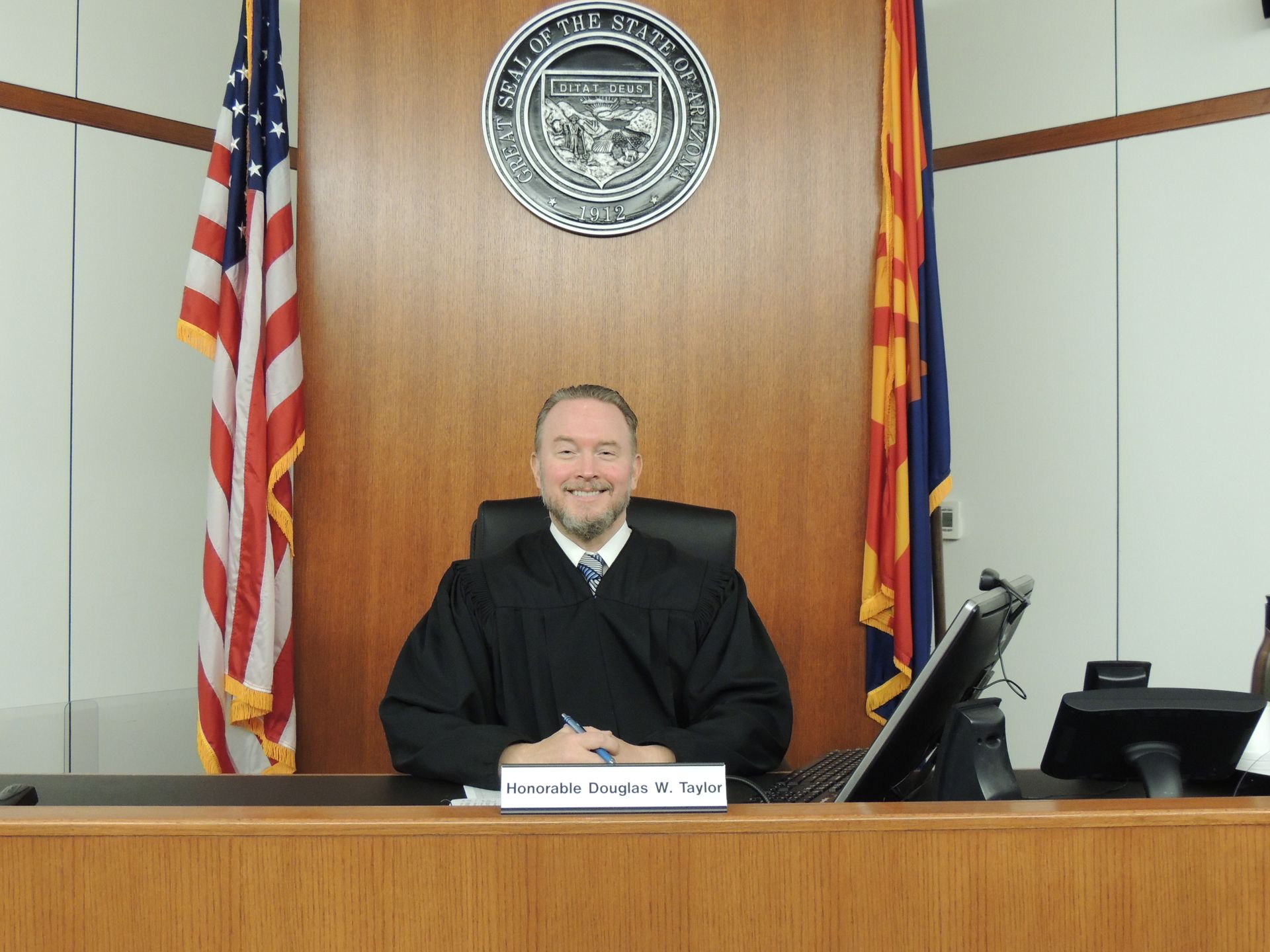
Fact-Checked
This page has been written, edited, and reviewed by a team of legal writers following our comprehensive editorial guidelines. This page was approved by Founding Partner, Matthew Cohen who has years of legal experience as a criminal defense attorney. Our last modified date shows when this page was last reviewed.
What judges look for in Tucson at the first appearance—and how to protect your home, family, and future

Criminal Defense • Domestic Violence • Orders of Protection • Tucson City Court & Pima County Courts
TL;DR: In Tucson and Pima County, the first hearing is about control — not guilt. A judge can set release conditions, impose no-contact orders, decide where you can live, and even whether you go home tonight. Know the rules, avoid common mistakes, and get local help fast.
Why the First 72 Hours Decide So Much
If you or someone you love is arrested in Tucson, you’ll likely see a judge quickly — either in Tucson City Court, Pima County Justice Court, or Pima County Superior Court (felonies and certain DV matters). At that first appearance, the judge will address release conditions and no-contact — the decisions that shape your next few weeks:
- Can you return home?
- Are you barred from contacting someone you care about?
- Do you need counseling or testing?
- Is there a bond? Travel limits?
This isn’t a trial and the judge isn’t deciding guilt. But the orders issued here can change your life in minutes.
Tucson Criminal Defense 101: The First Appearance / Arraignment
Expect three big steps:
Identity & rights. The court confirms who you are, ensures you understand the charges, and outlines your rights (including the right to remain silent and the right to counsel).
Conditions of release. Judges weigh safety, the law, and practical concerns. In domestic violence cases, they often consider no-contact and residential restrictions.
Next dates. The court sets your next hearing and any deadlines.
Former Judge’s Note: Anything you say can be used against you later. Don’t argue facts at this hearing. Focus on the conditions you need to live, work, and comply.
Domestic Violence in Tucson: No-Contact Orders & Common Surprises
“DV” in Arizona is a relationship tag, not a specific crime. Assault, disorderly conduct, threats, criminal damage — if the relationship fits the statute, the DV label can apply.
Two realities surprise most people:
- No-contact can be immediate. The judge can prohibit in-person, phone, text, and indirect contact (even through friends). Violations can trigger new charges.
- You may be told to leave your home. Housing restrictions are common, even where allegations are disputed.
What the Judge Actually Looks For
- Prior history (criminal or protective-order history, if any)
- Risk and safety concerns
- Whether you understand and will follow the court’s orders
- Practical needs that keep you stable and compliant (work, childcare, meds)
Orders of Protection (OOP) & Injunctions Against Harassment (IAH) in Tucson
These are civil court orders that carry real teeth. Even without criminal charges, an OOP/IAH can restrict where you live, who you contact, and your firearm rights. Hearings can be brief.
Preparation wins hearings:
- A simple timeline (before/during/after)
- Screenshots, call logs, voicemails, photos — organized and labeled
- Witness list with 1–3 people who actually move the needle
- Focused testimony: short, respectful, on point
Tip: You may only get a few minutes. Lead with what matters most; don’t relive the entire relationship.
DUI in Tucson: What to Expect Early
For DUI, Extreme DUI, or Aggravated DUI, early work includes:
- Challenging stops, testing, timelines, and body-cam
- Addressing license exposure (MVD deadlines can be brutal)
- Securing discovery and preserving video
Don’t assume a first appearance is routine — conditions and compliance (interlock, treatment) can be set immediately.
What To Do (and Not Do) Before Court
Do:
- Bring your notice, ID, case number, and a pen
- Draft a short timeline and gather screenshots in a safe place
- Ask about lawful ways to request modification of conditions (housing/child-contact)
- Plan transportation and arrive early (security and lines add time)
Don’t:
- Contact the protected person, even “just to explain”
- Discuss facts with the judge at first appearance
- Post about your case on social media
- Assume you can go home for clothes without permission (ask about one-time civil standby or lawful alternatives)
Tucson City Court vs. Pima County Justice & Superior Courts (Quick Map)
- Tucson City Court — Misdemeanors/DV within city jurisdiction; fast calendars; strict on compliance.
- Pima County Justice Court — Misdemeanors/DV in county jurisdiction; similar focus on safety and conditions.
- Pima County Superior Court — Felonies and some escalated DV; more formal procedures, more moving parts.
Local experience matters because each courtroom has its own rhythms — calendar flow, how conditions are discussed, what information the judge wants right now.
Five Mistakes That Make Tucson Cases Worse
Trying to talk the judge out of the facts at first appearance
Indirect contact through friends/family (it still violates no-contact)
Going home without permission (even briefly)
Skipping counseling or classes ordered as conditions
Deleting messages/photos you might need later
How a Tucson Criminal Defense Lawyer Actually Helps (Right Away)
- Before court: Preps you on what will be asked, what not to say, and how to request reasonable conditions
- At the hearing: Advocates for release, no-contact modifications, housing/child-contact solutions, and sensible compliance terms
- After hearing: Manages deadlines, starts discovery, and builds a plan (negotiation, motions, or trial posture)
The real goal in the first week is stability — work, school, family, housing — so you can comply and we can fight smart.
Frequently Asked Questions (Tucson Edition)
Do charges get dropped if the accuser changes their mind?
Not automatically.
Prosecutors decide. Courts can keep
no-contact in place even if both sides want contact. Lawyers often seek
lawful modifications or clarifications while the case proceeds.
Can I text just to apologize?
No. That’s a
contact violation. Ask counsel about lawful paths (e.g., modification requests, counseling conditions, or one-time civil standby to retrieve essentials).
Do I need a lawyer for Tucson City Court or Pima County Justice Court?
Yes. Early hearings shape
release,
housing,
contact, and
compliance. Local experience helps you avoid unforced errors.
What should I bring to an Order of Protection hearing?
A concise
timeline,
exhibits labeled and printed, and
witness names. Expect limited time; focus on what the judge needs to decide
today.
Your 24-Hour Game Plan (Printable)
- Don’t contact the protected person
- Save and back up texts/voicemails/photos
- Write a timeline (keep it neutral and clear)
- Gather medication/work/child-care info you may need to discuss
- Ask a lawyer how to modify conditions lawfully (if appropriate)
Final Word from a Former Judge
I’ve sat on the bench and I’ve stood next to clients in these same rooms. The first appearance isn’t the time to prove innocence — it’s the moment to stabilize your life while we build your defense. Show respect, follow conditions, and get calibrated on what judges actually care about in Tucson and Pima County courts.
About the Author
Douglas W. Taylor, Sr. is a Tucson criminal defense attorney and former Pima County Judge with nearly 25 years of courtroom experience. His practice focuses on domestic violence defense, orders of protection/injunctions, DUI, and criminal defense in Tucson City Court, Pima County Justice Court, and Pima County Superior Court.
Available 24/7 for confidential consultations.
¿Necesita ayuda en español? Atendemos casos de violencia doméstica y órdenes de protección en Tucson y el Condado de Pima. Podemos explicar el proceso y sus opciones. Llame o envíe un texto 24/7.
#Tucson, #Arizona, #Criminal Law, #Domestic Violence, #DUI, #Legal Advice, #Court, #Law

